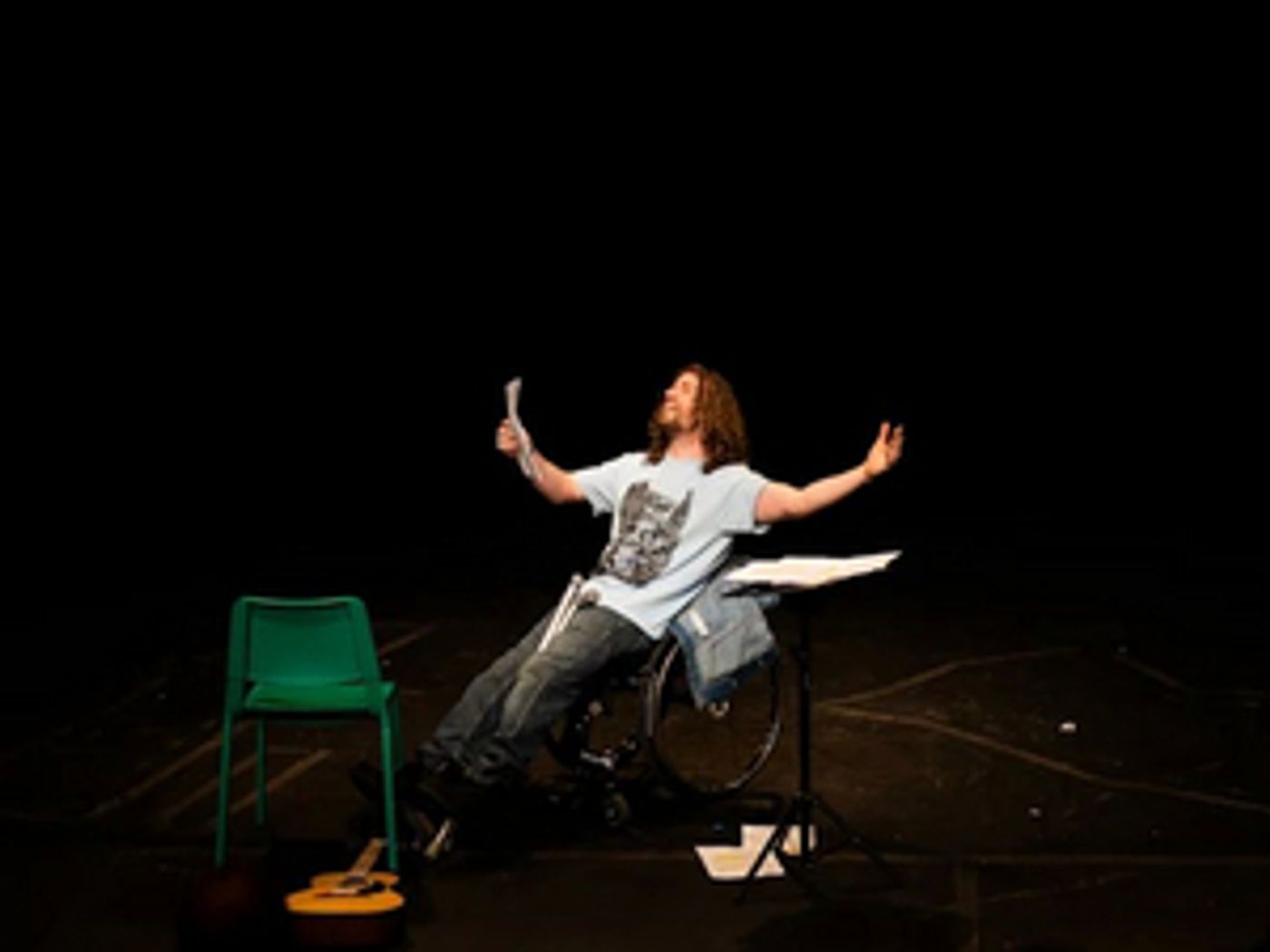Free Theatre Courses in Leeds and Sheffield Will Celebrate Deaf and Disabled Talent
The participants – from Yorkshire, London and Wales – attended hybrid sessions (on zoom and in person) in Leeds for writing and producing, and Sheffield for directing.

Twenty-four deaf and disabled writers, directors and producers have 'graduated' from a free new course that sets them on the road to a career in the theatre industry.
The joint venture between Leeds Playhouse, Sheffield Theatres and Ramps on the Moon gave eight early career writers, directors and producers (24 in total) the opportunity to enhance their skills, create valuable connections and develop new work guided by industry professionals in a supportive, inclusive setting.
The participants - from Yorkshire, London and Wales - attended hybrid sessions (on zoom and in person) in Leeds for writing and producing, and Sheffield for directing. The working groups were carefully developed to ensure that a wide range of needs could be catered for, including complex mental health challenges, chronic illnesses, physical impairments, learning disabilities, and neurodivergence.
The writing course at Leeds Playhouse was led by the theatre's Artist for Change and Writer in Residence Leanna Benjamin and Furnace Producer Rio Matchett, while the producers were led by Leeds Playhouse Agent for Change Paul Wilshaw and Freelance Producer Ben Rothera. The directing course was led by Sheffield Theatres' Agent for Change Ben Wilson and Associate Artistic Director Anthony Lau. At least one leader in every group was a disabled theatre professional.
Amy Leach, Deputy Artistic Director at Leeds Playhouse, said: "Collaborating with Ramps on the Moon and Sheffield Crucible to deliver this ambitious artist development programme for locally rooted artists has been brilliant, energising and galvanising.
"From the commitment and rigour shown by the delivery teams at both theatres to the creativity and passion of the artists involved, this has been a wonderful celebration of the wealth of deaf and disabled talent we have in the region and I can't wait to see what emerges from the seeds planted in this project."
The writers were tasked with creating a 15 to 20-minute monologue or duologue, which the directors then directed and the producers produced. Each writer/director/producer team then shared their work in the Bramall Rock Void studio space at Leeds Playhouse with the help of seven actors, some disabled and some non-disabled. Some of the teams are now continuing to develop their piece into something more substantial.
Ben Wilson, actor, director and Agent for Change at Sheffield Theatres, said: "This project has been a gift to both Sheffield Theatres and Leeds Playhouse in terms of teaching us how to make our artist development programmes more accessible and introducing us to an incredibly talented group of artists with whom we hope to have exciting future working relationships.
"For me personally, as a disabled artist and one of the people running these courses, it was thrilling to create an incredibly warm and supportive community of fellow disabled people with a whole range of experience, and then to bring them together to create some work. Support from fellow artists and fellow disabled people is vital, and the sense of community it brings is one of the most enjoyable things about working in this industry."
Julia Spencer, who took part in the writing course, described it as a "life-changing experience": "It was very important to me - and I'm sure others - for our work to be shared on a Playhouse stage rather than a rehearsal room. This experience has given me more confidence about writing, applying for opportunities and working collaboratively."
Directing course participant Steven George said: "Being in the same space as a large group of fellow disabled, talented creatives is fantastic and doesn't happen often. Normally, there's only one disabled person in the room. When there is a group together, it very often enhances things for everyone, not just the disabled people. The business is slowly getting better when it comes to disability awareness and portrayal, and projects like this can only help to progress this at a faster pace."
For Sian Wootton, who took part in the producing course, it was about learning new skills "in a completely supported and safe environment": "It was great to be in an environment where disability and diversity were so celebrated and included. To witness a range of disabled talent that didn't feel 'fringe' or an aside but part of the mainstream - as it should be - made me more confident to put myself out there and to trust that I have something to offer."
All participants received a stipend to pay for travel, access and practical expenses to negate any potential financial barrier to participation.
The courses were supported by Ramps on the Moon, a collaborative network of six major regional theatres aimed at normalising the presence of deaf and disabled people both on and off stage. If ongoing funding is secured, it is hoped they will form the bedrock of a continuing and open network for professional development, as well as social and pastoral support, for creatives with physical disabilities, learning disabilities, and mental health issues based in the north.
![]()
Videos

